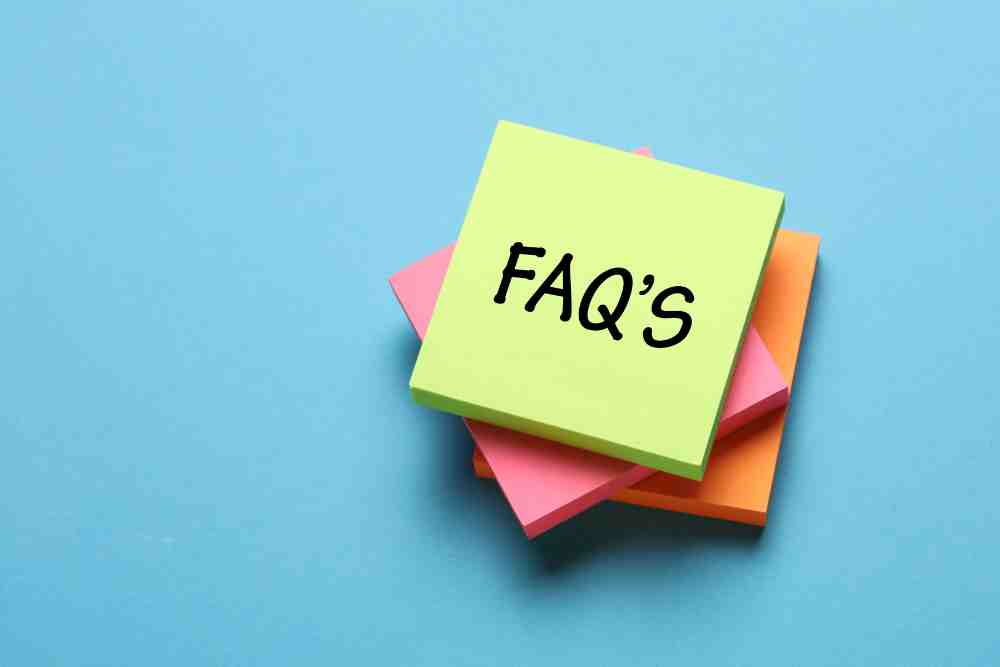Benefits of Using CRM to Store Business Data

As businesses continue to grow and evolve in the digital age, the importance of effectively managing and storing business data becomes increasingly crucial. Customer Relationship Management (CRM) systems have emerged as a powerful tool for businesses to store and organize their data. In this article, we will explore the benefits of using CRM to store business data and how it can revolutionize the way businesses operate.
1. Centralized Data Storage
One of the primary benefits of using CRM to store business data is the ability to centralize all relevant information in one place. Traditionally, businesses would store their data in various locations such as spreadsheets, physical files, or even in the minds of employees. This decentralized approach often leads to data inconsistencies, duplication, and difficulty in accessing information when needed.
With a CRM system, all data is stored in a centralized database accessible to authorized users. This ensures that everyone in the organization has access to the most up-to-date and accurate information. Whether it’s customer contact details, sales history, or marketing campaign results, all data is stored in a single location, making it easier to manage and analyze.
2. Improved Data Security
Data security is a top concern for businesses of all sizes. Storing data in spreadsheets or local servers can be risky, as they are susceptible to hardware failures, data corruption, or even theft. Additionally, unauthorized access to sensitive business data can lead to severe consequences, including financial loss and damage to the company’s reputation.
CRM systems offer robust security measures to protect business data. They employ encryption techniques to safeguard data during transmission and storage. Access controls can be implemented to ensure that only authorized individuals can view or modify specific data. Regular backups and disaster recovery plans are also typically included in CRM systems, providing an added layer of protection against data loss.
3. Enhanced Data Analysis and Reporting
Effective data analysis is crucial for businesses to make informed decisions and drive growth. However, analyzing data stored in disparate systems can be time-consuming and prone to errors. CRM systems provide powerful tools for data analysis and reporting, enabling businesses to gain valuable insights quickly.
By storing data in a CRM system, businesses can generate comprehensive reports and dashboards that provide a holistic view of their operations. For example, a sales team can analyze customer buying patterns, identify upsell opportunities, and track sales performance. Marketing teams can measure the effectiveness of campaigns, segment customers based on demographics, and personalize communication. These insights can help businesses optimize their strategies and improve overall performance.
4. Streamlined Collaboration and Communication
Collaboration and communication are essential for businesses to operate efficiently. However, when data is scattered across different systems, it can be challenging for teams to collaborate effectively. CRM systems offer features that facilitate seamless collaboration and communication among team members.
For instance, a CRM system can enable sales and marketing teams to share customer information, track interactions, and collaborate on campaigns. Project management features can help teams stay organized and ensure that everyone is on the same page. Additionally, CRM systems often integrate with other communication tools such as email and messaging platforms, further streamlining communication within the organization.
5. Automation and Efficiency
Manual data entry and repetitive tasks can be time-consuming and prone to errors. CRM systems offer automation capabilities that can significantly improve efficiency and productivity. By automating routine tasks, businesses can free up valuable time for employees to focus on more strategic activities.
For example, a CRM system can automate lead capture from website forms, eliminating the need for manual data entry. It can also automate follow-up emails, reminders, and notifications, ensuring that no leads fall through the cracks. By automating these processes, businesses can improve response times, enhance customer satisfaction, and ultimately drive more sales.
Real-World Example: XYZ Company
XYZ Company, a small e-commerce business, implemented a CRM system to store and manage their customer data. Prior to using CRM, they relied on spreadsheets and email to track customer interactions, resulting in data inconsistencies and missed opportunities.
After implementing the CRM system, XYZ Company experienced several benefits. Firstly, they were able to centralize all customer data, including contact information, purchase history, and support tickets. This allowed their sales and support teams to have a complete view of each customer, enabling them to provide personalized and efficient service.
Secondly, the CRM system provided valuable insights through its reporting and analytics features. XYZ Company was able to identify their most profitable customer segments, tailor marketing campaigns accordingly, and measure the effectiveness of their efforts. This resulted in increased sales and improved marketing ROI.
Lastly, the automation capabilities of the CRM system helped XYZ Company streamline their processes. They automated lead capture from their website, automated follow-up emails, and set up notifications for important events. These automation features saved them time and ensured that no leads were missed, ultimately contributing to their business growth.
Get Your FREE 14-Day Trial and Take Your Business To The Next Level with an All-In-One Sales and Marketing Platform for businesses, agencies and marketers.
CRM systems offer numerous benefits for businesses looking to store and manage their data effectively. From centralized data storage to enhanced data analysis and reporting, CRM systems provide a comprehensive solution for businesses of all sizes. By implementing a CRM system, businesses can improve data security, streamline collaboration and communication, and automate routine tasks, ultimately driving growth and success.
Consider implementing a CRM system like SaasExpert.ca – Your All-In-One Sales and Marketing Platform for small businesses, agency owners, and marketers. With its robust features and user-friendly interface, SaasExpert.ca can help businesses unlock the full potential of their data and take their operations to the next level.
Learn more about “Organizing your business data with a CRM” right here.
Frequently asked questions about Benefits of Using CRM to Store Business Data.

How can CRM systems enhance customer satisfaction and loyalty? 😊
Customer Relationship Management (CRM) isn’t just a fancy tech tool; it’s the heartbeat of many successful businesses today. The reason? At its core, CRM revolves around the customer, fostering satisfaction and loyalty. Here’s how:
Personalized Interactions 🙋: Imagine calling a business and the representative already knows your purchase history, preferences, and previous concerns. With CRM, every interaction becomes tailored, making customers feel valued and understood.
Swift Problem Resolution ⚡: When customer concerns are logged and tracked in a CRM, they’re less likely to fall through the cracks. The system ensures timely follow-ups, resulting in faster problem resolutions.
Consistent Communication 🗣️: Nothing irks a customer more than having to repeat their issue multiple times to different representatives. A CRM ensures every team member is on the same page regarding customer histories and interactions.
Rewards and Recognition 🎁: CRM systems can help identify loyal customers or brand advocates. Businesses can then roll out special offers, discounts, or loyalty programs for them, amplifying their attachment to the brand.
Feedback Loop 🔄: An organized CRM system can also facilitate collecting and acting upon customer feedback. When customers see their opinions shaping products or services, their trust and loyalty soar.
In essence, a CRM turns businesses from faceless entities into friendly companions, ensuring every customer feels heard, respected, and cherished.
What operational efficiencies can be gained through a CRM? 🚀
Operational efficiency is the magic potion that can boost a business’s productivity, reduce costs, and enhance service quality. A CRM acts as the wizard’s wand, bringing about these efficiencies in multiple ways:
Automated Tasks 🤖: Mundane, repetitive tasks like data entry or sending acknowledgment emails can be automated with CRM, freeing up valuable human resources for more critical tasks.
Centralized Data Repository 🏦: No more rummaging through scattered spreadsheets or documents. A CRM acts as a centralized hub for all customer-related data, ensuring quick and easy access.
Collaborative Workspaces 👩💻👨💻: CRM platforms often offer tools for team collaboration. Whether it’s sharing notes, assigning tasks, or updating progress, everything becomes streamlined.
Data-driven Decisions 📊: With organized data at your fingertips, businesses can make informed decisions, reducing the trial-and-error approach and saving time and resources.
Reduced Training Time 🕰️: With intuitive CRM interfaces, training new employees becomes more straightforward. They have a one-stop solution to understand customers and business operations.
Through these avenues and more, CRM systems transform business operations from a chaotic jigsaw puzzle into a harmonious symphony, leading to tangible operational efficiencies.
How can a CRM help in scaling my business? 🌱➡️🌳
Scaling a business isn’t merely about growing; it’s about growing smartly and sustainably. Here’s how CRM becomes an invaluable ally in this journey:
Predictive Analysis 🧠: With the data accumulated in CRM, businesses can identify trends, forecast demand, and strategize their next moves.
Improved Lead Management 🎣: As businesses grow, so does their customer base. CRM ensures that no lead is overlooked, improving conversion rates.
Resource Allocation 📌: CRM insights can guide businesses on where to allocate resources for maximum impact, whether it’s a new market venture or a product launch.
Seamless Integrations 🔗: As businesses scale, they might use more tools. CRM systems often allow integrations, ensuring that the business ecosystem remains interconnected.
Feedback Loop for Improvements 🔄: Scaling often comes with teething issues. An efficient CRM system can help gather feedback and pinpoint areas of improvement.
With a CRM, scaling becomes less of a daunting challenge and more of an exciting journey, backed by data-driven strategies and efficient operations.
How does CRM contribute to better sales strategies? 📈
Sales is an art, but with CRM, it’s an art backed by science. Combining intuitive selling techniques with CRM’s data-driven insights can supercharge sales strategies:
Lead Prioritization 🥇: Not all leads are equal. CRM helps identify and prioritize high-value or high-conversion probability leads.
Sales Funnel Clarity 🔍: From lead generation to conversion, CRM provides a clear view of the sales funnel, highlighting bottlenecks or stages that need attention.
Cross-Selling and Up-Selling Opportunities 🛍️: With customer purchase histories and preferences stored in the CRM, sales teams can identify opportunities to offer complementary products or premium versions.
Instant Communication 💬: CRM systems can be integrated with communication tools, ensuring that sales representatives can reach out to leads or customers instantly, capitalizing on golden opportunities.
Performance Analysis 📉: By tracking sales metrics, CRM aids in evaluating the effectiveness of sales strategies, providing insights for iterative improvements.
In a nutshell, a CRM doesn’t just support the sales team; it amplifies their efforts, ensuring strategies are sharp, focused, and result-driven.
Are there any marketing advantages to using CRM systems? 🎨
Absolutely! While CRM stands for Customer Relationship Management, it could very well also mean “Comprehensive Marketing Mastery.” Here’s how:
Targeted Campaigns 🎯: With segmented customer data, marketers can design and execute campaigns that resonate with specific audience groups, improving engagement and conversion rates.
Trackable ROI 💲: With CRM, every marketing effort can be tracked, allowing businesses to evaluate the return on investment and adjust strategies accordingly.
Multi-channel Marketing 🌐: Whether it’s email, social media, or web campaigns, CRM can integrate and manage multiple marketing channels, ensuring a consistent brand message.
Event and Webinar Management 🎙️: Many CRM platforms offer tools for event management, from invitations to feedback collection, streamlining the marketing process.
Content Personalization 💌: Understanding customer behaviors and preferences means marketers can tailor content, be it blogs, emails, or ads, ensuring relevance and higher engagement.
In the grand theatre of business, if sales bring in the applause, marketing sets the stage. With CRM, not only is the stage set, but it’s also illuminated, ensuring marketing strategies shine bright and achieve their desired impact.
- Benefits of Using CRM to Store Business Data
- crm
- customer relationship management
- What is CRM Software?






